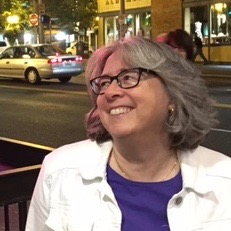My novel A Useful Life was a quarter finalist for the 2011 Amazon Breakthrough Novel Award. It’s about a woman researching her dead husband’s family in search of answers to questions he left behind.
I’ve been a genealogist for more than twenty years. I began researching my husband’s family because he thought his father had no relatives. I took that as a challenge. I now have more than three thousand people in his family tree going back to the 1600s. So much for no relatives.
Along the way we’ve met many third and fourth cousins around the world and become quite close to many of them. Those are the living ones, but in a way I feel quite close to some of the deceased ones too. As I dug up information about them, I found myself thinking about the lives and stories beyond the dates and facts. I read their letters and obituaries and felt I knew them somehow. When my research turned up something puzzling, I imagined logical explanations for their actions. I felt sad when I saw their death certificates and happy when I read their wedding announcements. I began to make up life stories for them in my head. Then I wanted to tell those stories, but I didn’t want the burden of footnotes and academic rigor, so I took those imagined lives and mixed them around and created fictional characters. They have some of the life facts of real people and they share a historical context with real people in the Jewish community of Memphis between 1859 and 1893, but their personalities, their actions, their behavior, are made up.
This is all to say that the 19th century characters in my novel are not my husband’s ancestors, nor are they really based on his ancestors. They’re people I imagined lives for, based on what I learned about what it was like to live in Memphis in 1870 or 1880. The main character researching her dead husband’s family is not me, my husband is not dead, and her sons are not my sons. I created her and her genealogical journey to explore history, the meaning of family, and the surprising things we discover about ourselves when we embark on that journey.
